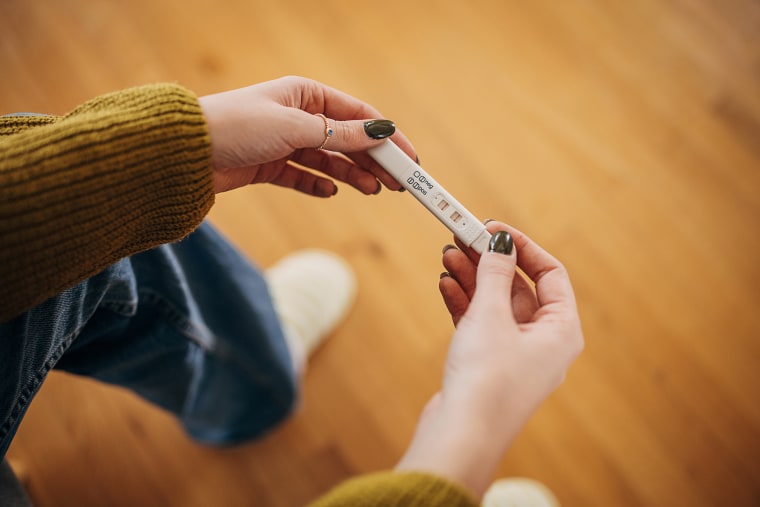For some couples, getting pregnant happens quickly. For others, it takes some time. Once having a baby is on the brain, couples may be curious for tips on how to pregnant.
A pregnancy occurs when an egg released from the ovary enters the fallopian tube and is fertilized by sperm to create an embryo, which then implants in the womb, or uterus.
How to get pregnant
Dr. Sanaz Ghazal, a board-certified reproductive endocrinology and infertility specialist and OB-GYN in southern California, told TODAY Parents that human reproduction is very inefficient.
"The timing and coordination of these events in addition to the quality of the egg and sperm are critical to achieving a successful pregnancy," Ghazal told TODAY.
Ghazal said that a young, healthy, fertile person — under optimal conditions — has about a 20-25% chance of getting pregnant with each cycle.
"Even though most people successfully conceive within a few months, it’s important to remember that infertility affects one in eight couples," Ghazal said.
Related: How to get pregnant with a girl
How long does it take to get pregnant?
The decision of when to contact a doctor if you are struggling to conceive depends largely on age.
If you are under the age of 35 and have been trying for a year without success, you should contact a doctor.
If you are age 35 or older, see a doctor if you have been unsuccessful after six months of trying to conceive.
If you are 40 or older, your fertility can be significantly compromised and it’s important to seek help after three months of trying, or as soon as possible.
Related: How to get pregnant with a boy
Tips for how to get pregnant naturally
"Maximizing your fertility potential calls for a holistic approach to living a healthy lifestyle," Ghazal told TODAY Parents. "(These) are just some ways to help optimize your natural ability to conceive successfully."
- Eating a well-balanced diet rich in whole organic foods with limited animal products and processed foods
- Quitting smoking
- Maintaining a healthy BMI
- Exercising regularly
- Reducing your exposure to environmental and other toxins
- Reducing stress
- Managing any chronic medical conditions
How do I increase my fertility to get pregnant?
People with ovaries are born with all the eggs they will ever have in their life and as they age both the quantity and quality of their eggs decline.
“There isn’t a way to increase the number of eggs you have and there aren’t ways to significantly improve your egg quality, but there are ways to enhance your natural fertility,” Ghazal said.
Ghazal added that there are also several risk factors for infertility including ovulation problems, endometriosis and fibroids that can be treated by a physician to help improve your chances of conceiving naturally.
What is the best age to be pregnant?
When it comes to fertility, nothing gets better or easier with time.
"The sooner you try to conceive, the better your chances of getting pregnant," Ghazal told TODAY. "The natural decline in egg quantity and quality begin in our late 20s and early 30s and by the time you reach age 35, your fertility potential has dropped by about half."
After the age of 35, age-related pregnancy risks like high blood pressure and diabetes in pregnancy also increase.
"Despite the pressures of your biological clock, it’s also important for you to feel prepared to conceive," Ghazal said. "If you feel like you are not quite ready to start your family, you can consider freezing your eggs or preserving your fertility for the future."
Related: What is secondary infertility?
Ghazal recommends being proactive about fertility.
"If you have questions about your fertility or family building, talk to a healthcare provider," she said. "A conversation with a fertility doctor about your health history and specific goals combined with an evaluation and fertility testing can empower you with valuable information to help you make the best decisions for yourself."

